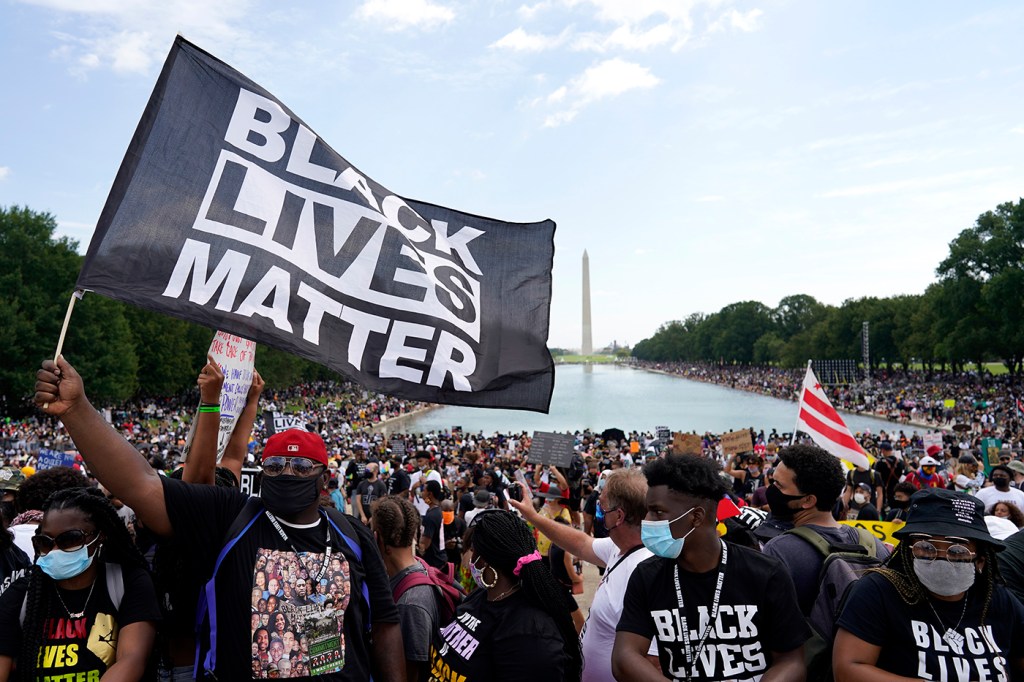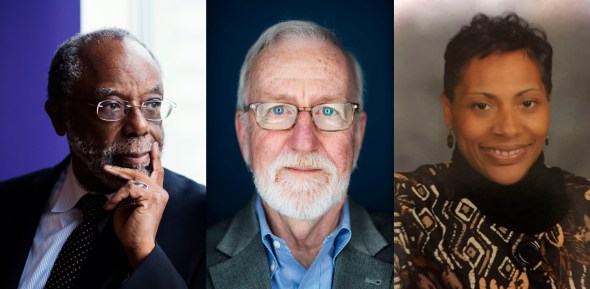Why this year’s MLK tributes take on a new sense of urgency

The political, racial, and public health turmoil of the past year has awakened more people to the nation’s disparities, giving today’s observances of Martin Luther King’s legacy special meaning, says the director of Northeastern’s Institute on Race and Justice.
“It certainly does feel different,” says Jack McDevitt, professor of the practice in criminology and criminal justice, and an author whose research has focused extensively on hate crime, racial profiling, and human trafficking.
Today at 3 p.m. ET, Northeastern will host an online event to mark the life of the civil rights leader whose words and actions have inspired countless people across generations to fight for equality, civil rights, and justice for all. Joseph E. Aoun, president of Northeastern, will lead the celebration of Dr. King’s legacy and will be joined by faculty colleagues and students for conversations and performances during the Facebook Live event.
The event’s theme will be inspired by the phrase “good trouble,” famously coined by the late U.S. Rep. John Lewis—whose life and work made a lasting mark on the civil rights movement, sparked meaningful action and change in the name of justice, and contributed to progress across the nation.

Left to right: Ted Landsmark, distinguished professor of public policy and urban affairs; Jack McDevitt, professor of the practice in criminology and criminal justice; and Melissa Pearson, assistant teaching professor of English. Photos by Adam Glanzman/Northeastern University and courtesy photo
“Good trouble’ was a term used when describing peaceful protests to confront racist legislation and practices in the past,” explains McDevitt. Adds Melissa Pearson, assistant teaching professor in English, who is on the organizing committee of the City of Boston’s annual MLK Breakfast of which Lewis was the inaugural speaker, “’Good trouble’ is that which intends to yield results that benefit a greater good. It’s selfless.”
The 51st Annual Martin Luther King Jr. Memorial Breakfast in Boston is the oldest MLK event in the nation. Northeastern has partnered with the MLK Memorial Breakfast Committee to reimagine the breakfast this year as a virtual event that will include a multifaceted, celebratory program and an extended program of virtual rallies and teach-ins. That event will take place at 11 a.m. ET
The Northeastern event’s agenda for Monday afternoon includes words of tribute from a former House colleague, U.S. Rep. Jim McGovern of Massachusetts, who is also the parent of two Northeastern students. “I will never forget getting arrested together in front of the Sudanese Embassy as we protested the genocide in Darfur, or being part of a sit-in with John on the House Floor as we protested inaction in the aftermath of gun violence,” McGovern said after Lewis died.
Viewers will also get to hear the story of Northeastern undergraduate Tyreke Gaston. The Maryland native is pursuing a degree in psychology while simultaneously completing pre-medical requirements and working as a physical therapy aide.
Entertainment will be provided by Northeastern undergraduate student Damian Lee, who will deliver a moving rendition of the Simon and Garfunkel classic, Bridge Over Troubled Water.
Gaston and Lee are part of Northeastern’s Torch Scholars program, a scholarship program dedicated to supporting talented, first-generation college students who have already succeeded despite extraordinary circumstances.
The centerpiece of the program’s agenda is a panel discussion with three Northeastern faculty members: Shalanda Baker and Hilary Robinson from the School of Law, and Nicole Aljoe from the College of Social Sciences and Humanities.
“On this Martin Luther King Day, we are experiencing a level of discord and turmoil around race and social justice in this country that is unprecedented,” says Ted Landsmark, an attorney and distinguished professor of public policy and urban affairs who will facilitate the discussion.
President Aoun will close the program.
The event will be streamed on Northeastern’s Facebook page.
“Good trouble” is an especially pertinent topic today, says McDevitt.
“There is so much unfinished business when it comes to dealing with race in America,” says McDevitt. “The pandemic has illustrated the work that needs to be done in improving the health of the African American and Latino communities, and so much work needs to be done to reduce economic inequalities.”
In addition, he said, the Black Lives Matter protests in the summer and the riots at the U.S. Capitol have highlighted concerns about police violence and other areas of disparate treatment of people of color.
Those were many of the same concerns echoed in King’s I Have a Dream speech more than 50 years ago on the steps of the Lincoln Memorial in Washington, McDevitt and Pearson note.
To really understand what King stood for beyond what’s in a textbook, Pearson offers this advice: “Try to have an interest in Black culture more than once a year. Try not to relegate Black people to a monolithic experience. Try to understand the existence, not just the struggle.”
For media inquiries, please contact media@northeastern.edu.





